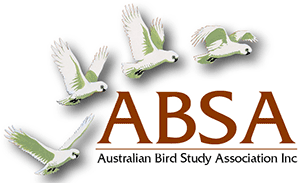BREEDING BIOLOGY AND BEHAVIOUR OF THE SCARLET ROBIN Petroica multicolor AND EASTERN YELLOW ROBIN Eopsaltria australis IN REMNANT WOODLAND NEAR ARMIDALE, NEW SOUTH WALES
| Posted: |
12/04/2021 |
| Author(s): |
S. J. S. Debus |
The breeding biology and behaviour of the Scarlet Robin Petroica multicolor and Eastern Yellow Robin Eopsaltria australis
were studied at lmbota Nature Reserve, on the New England Tableland of New South Wales, in 2000-2002 by colour-banding
and nest-monitoring. Yellow Robins nested low in sheltered positions, in plants with small stem diameters (mostly saplings, live
trees and shrubs), whereas Scarlet Robins nested high in exposed positions, in plants with large stem diameters (mostly live
trees, dead branches or dead trees). Yellow Robin clutch size was two or three eggs (mean 2.2; n = 19). Incubation and
nestling periods were 15-17 days and 11-12 days respectively (n = 6) for the Yellow Robin, and 16-18 days (n = 3) and 16 days
(n = 1) respectively for the Scarlet Robin. Both species were multi-brooded, although only Yellow Robins successfully raised a
second brood. The post-fledging dependence period lasted eight weeks for Yellow Robins, and six weeks for Scarlet Robins.
The two robins appear to differ in their susceptibility to nest predation, with corresponding differences in anti-predator
strategies.
>> Download Abstract |
File Size: 6KB
>> Download Complete PDF | File Size: 1MB
